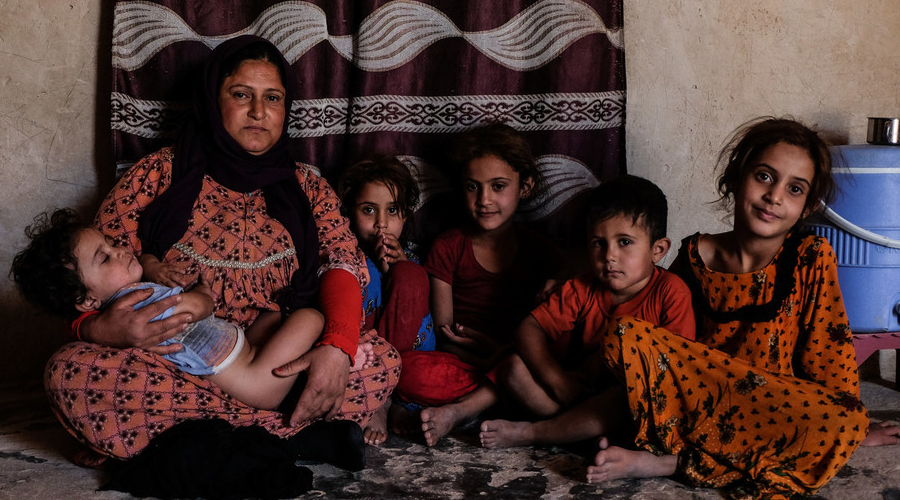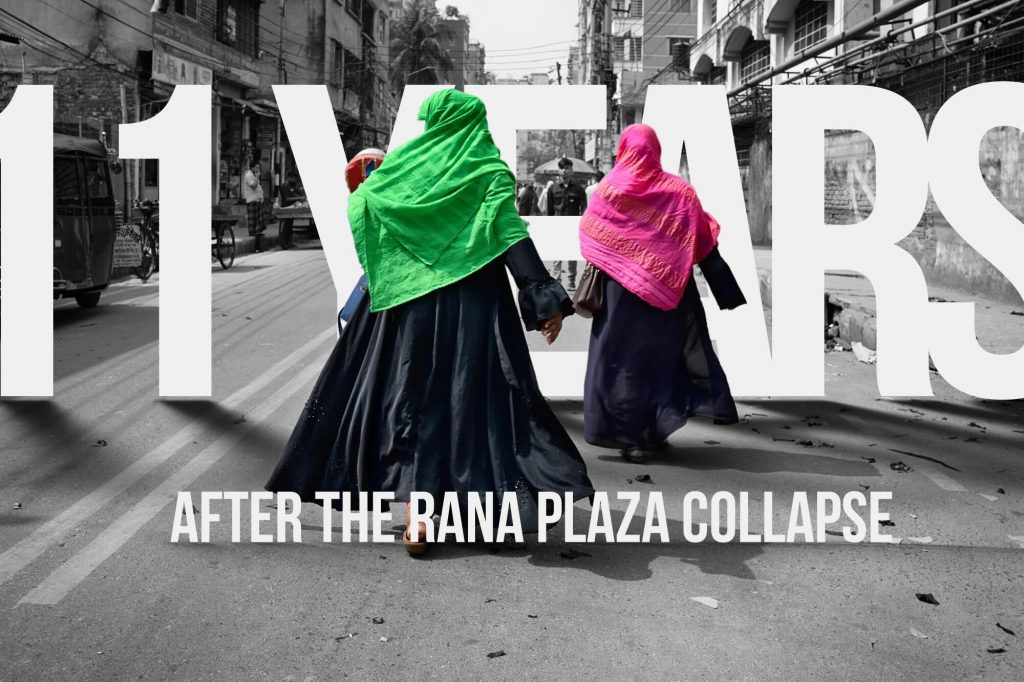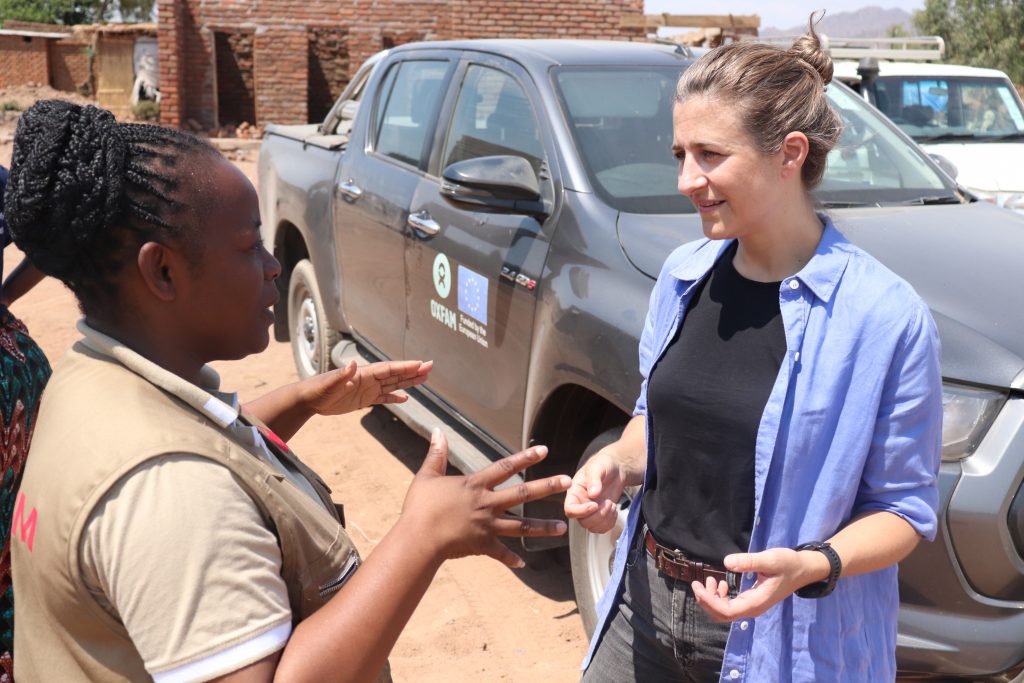Displacement and Hunger in Qara Tapa
33-year-old Rasmiya sits on the floor of her one room mud house on the outskirts of Qara Tapa town in southern Diyala.
“If the children tell me they are hungry and I can’t do anything about it, they start crying until they get tired and then they fall asleep.”Rasmiya is one of thousands of women struggling to feed their children in the wake of ISIS. Having left her home in Sa’aidat, a small village nearby in 2014 when ISIS took control, Rasmiya, her husband, their five children and grandmother have been displaced ever since. Work is scarce and therefore, so is food.
By the end of 2016 there were 40.3 million people living in internal displacement as a result of conflict and violence in the world. This number has nearly doubled since 2000 and has increased sharply over the last five years.
“Our fridge is empty most of the time, we don’t have enough money to buy food. Sometimes my children ask me when are we going to have a good meal and I tell them ‘your father is on his way back home and he’s going to bring you all you wish for’, and then when he shows up empty handed they start crying until they all fall asleep.”The fridge is not the only thing that’s empty in Rasmiya’s home. The walls and floors are bare except for an old TV and a pile of thin mattresses in the corner which she brings out for the family to sleep on at night.
“We lost everything and the things that you see here were given to us by other people, my brother gave me this TV, the old empty fridge is from my nephew, and mysisters gave me clothes for the children.”Internal displacement uproots people from their homes, often at a moment’s notice, depriving them of their jobs, basic services and social connections.This week marks 20 years since the Guiding Principles on Internal Displacement were adopted. They provide a framework for the protection and assistance to internally displaced people. The Guiding Principles have inspired laws and policy in 76 countries.
However, little has changed on the ground. Unacceptable numbers of people are displaced each year, and more and more people live in situations of prolonged displacement with no solution in sight.

In late 2015, in the town of Qara Tapa, Oxfam gave 300 displaced households an unconditional cash grant of $200-$300US and in 2017 Oxfam ran a “cash for work” project in Qara Tapa town to rehabilitate two damaged schools. The project provided an income for 90 laborers who were a mix of displaced and host community. Simultaneously Oxfam ran an “income generation” project supporting ten people to reopen their businesses.
As people rebuild their lives in the wake of ISIS they need support to find work, feed their families and get their children back into school. Despite the hardships her family face Rasmiya is still positive about the future,
“Our life is so unstable, my husband worked today and so we have some money to buy bread, but I keep thinking what if he can’t work tomorrow? I keep dreaming about having enough food and a proper house where my children can grow up and go toschool, finishing their education and living a better life than the one that we are living now.”Oxfam in Iraq aims to build resilience in conflict-affected areas of the country by rehabilitating existing basic services and providing longer term interventions in the areas of Water, Sanitation and Hygiene and Emergency Food Security and Vulnerable Livelihoods, in coordination with local authorities and partners.

